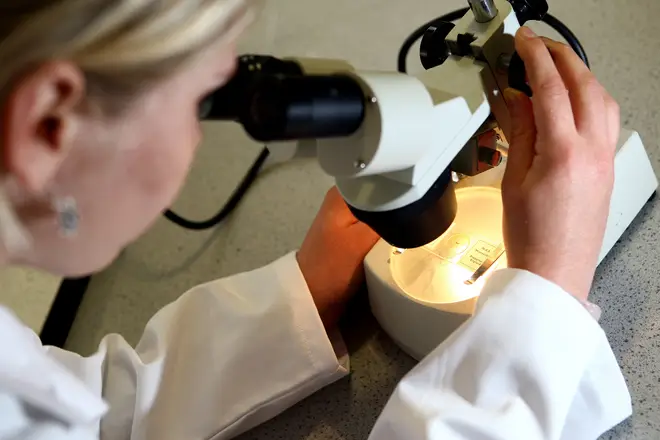
Tom Swarbrick 4pm - 6pm
23 February 2021, 01:03

Scientists have discovered a way to predict if someone will develop a common type of leukaemia based on their genetics.
Researchers from eight UK universities said the findings could allow future prospective patients to be warned earlier that they are susceptible to developing Chronic Lymphocytic Leukaemia (CLL).
The team studied blood samples taken from patients with CLL, the most common type of blood cancer, and found some had a "genetic tendency" to develop progressive forms of the disease.
Those individuals could then be given a personalised treatment process prior to the illness taking an effect.
Haematology consultant Dr David Allsup, who is also a senior lecturer at Hull York Medical School, said: "The study has demonstrated that CLL patients often possess the same genetic tendencies, and as such we can analyse the non-cancerous cells of prospective patients to predict the likelihood of future diagnosis.
"The study also allows us to move towards a more personalised diagnosis of leukaemia, and adapt our approach for patients based on the likelihood of them developing aggressive symptoms."
Exclusive: Stranded cancer survivor reunited with stranger who helped him
Watch: Cancer patients in UK living through ‘worst possible Groundhog Day’

Cancer patients in the UK are living through the ‘worst possible Groundhog Day’
Symptoms for CLL vary in severity from patient to patient. Some lose weight or develop lumps in their necks and armpits.
Others may show no symptoms whatsoever, despite the leukaemia cells being present in their blood.
Dr Allsup added: "Not only does the research inform us if patients have the genetic tendency to develop progressive CLL, but it also enables us to determine whether or not a patient's CLL will require treatment in the future or not.
"That way, we are able to keep a close eye on the patients with a high risk, and have treatment options available as soon as they are required."
Being able to identify the disease early will increase people's chances of surviving the illness. However, the team's discovery is not a cure for the disease.
Watch: 'Devastated' caller’s life on line as rare cancer treatment cancelled
Watch: Caller with terminal cancer cries on-air while seeking life insurance advice

Caller puts lockdown in perspective with terminal cancer story
The study was a collaborative effort between nine UK institutions:
Professor James Allan, from Newcastle University's Centre for Cancer, said: "Emerging evidence suggests that early treatment for patients at high risk of developing progressive CLL could significantly delay the onset of symptomatic leukaemia and improve survival.
"The results from this collaborative study will help patients and their doctors make important decisions about when to start treatment."